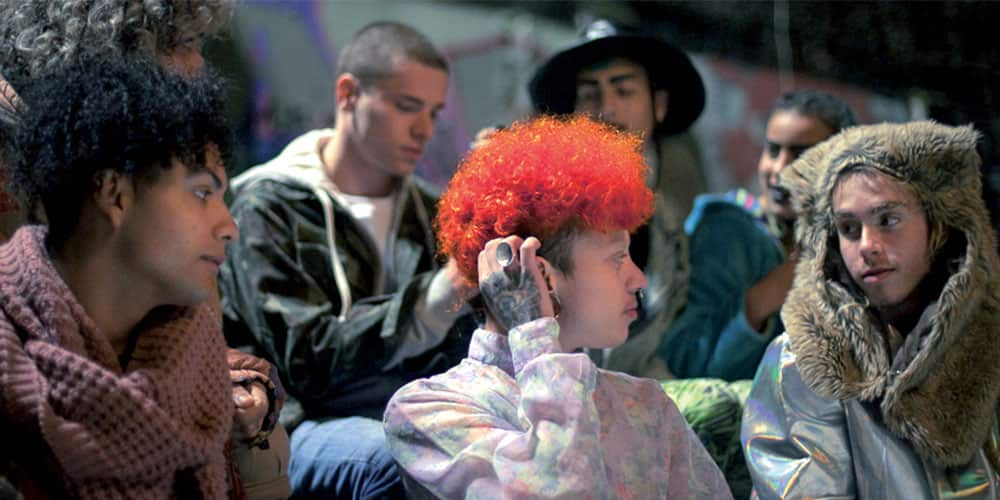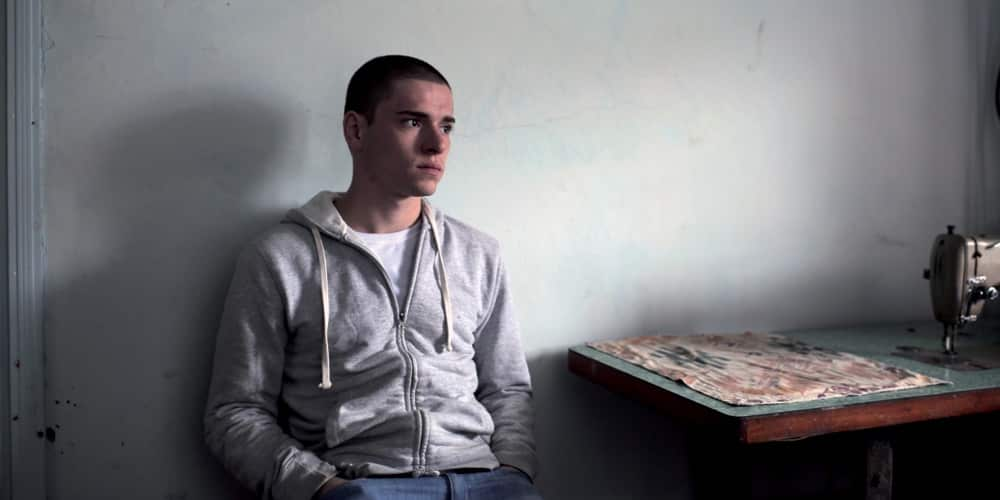As the market for independent queer films dries up in the mainstream marketplace – they can’t all have the backing of major distributors and award season cache like Moonlight or Carol – it is hardly surprising that queer film festivals have boomed, screening stories of liberation, identity, struggle, and celebration. What’s curious, then, is a work like The Nest (O Ninho). From Brazilian filmmakers Filipe Matzembacher and Marcio Reolon, The Nest is a four-part miniseries originally made for television that is nonetheless screening as a feature-length work.
Despite technically being a miniseries, The Nest is incredibly cinematic, and bold step up both artistically and narratively for the directors from their last film Seashore.
That earlier film was a modest coming-of-age drama, and while The Nest also invests its time in the burgeoning adulthood of a young man and his sexuality, it frames it against the backdrop of an equally rich and compelling story.
A ghostly mystery set amidst the queer punk underworld of Porto Alegre in the south of Brazil, Bruno - played by Nicolas Vargas - is a 19-year-old AWOL army soldier who stalks the streets, nightclubs, and gay hang-outs searching for his older brother, Leo. Years ago, Leo ran away from home, escaping his homophobic parents, who remain unaware of both Bruno’s search for his older brother, and of Bruno's own sexuality, which remains hidden behind his silent and stoic personality, his buzz cut and wardrobe of hoodies and camouflage jackets.

Bruno befriends Stella (Sophia Starosta), a bartender who worked with Leo. Stella is sceptical of Bruno’s desire to find his brother, who has told her stories of the pain inflicted upon him by their parents. Bruno also finds himself ensconced with a pack of vibrant punk youths who embrace him, allowing him to feel at ease with himself for the first time since his brother left.
The world of The Nest is an intoxicating one, making it as easy for viewers to succumb to as it is for Bruno. Eccentric styles and fashion, faces streaked in makeup and hair a kaleidoscope of colours, The Nest approaches gender with a mixed-up blend of traditions taken from femininity, masculinity, and everything in between. Electronic music pulses through the film, including most memorably Karol Conka and Tropkillaz’s “Tombei” in a third-part dance sequence that ought to be a YouTube viral marketing video and a Portuguese drag inspiration.

The concept of family is a big one in queer culture and particularly in our cinema. The Nest is never just about the blood family that Bruno goes in search for, or the one he discovers on the streets of Porto Alegre. It weighs and debates the significance of each as Bruno attempts to not just find his blood relative, but begins to build a life with his new friends. It is nonetheless significant that among this group, the film tells the story of two brothers, and gay brothers at that; a dynamic that is uncommon on screen.
With its open-ended conclusion amid the naked, blasting fluorescents of a discotheque dancefloor, there is certainly possibility for more of The Nest . It is a world of ravishing details and intricate characters, where even minor side-characters have a world of history behind them. It is a world that I embraced and would care to dive further into. This is a surprising and sumptuous experience.
The Nest plays at the Queer Screen Mardi Gras Film Festival on Friday February 24 (Sydney CBD) at 9pm. The Queer Screen Mardi Gras Film Festival runs from February 15 to March 2. For more information, tickets, and the full line up of films, you can check out their site here.
SBS will be streaming the 2017 Sydney Gay and Lesbian Mardi Gras parade live on Saturday, March 4 on SBS On Demand, and will then air our Mardi Gras special event - with commentary from our hosts, behind-the-scenes action and exclusive interviews - on Sunday March 5. In the meantime, you can keep up with all our Mardi Gras content here.
Love the story? Follow the author here: Twitter @glenndunks.

